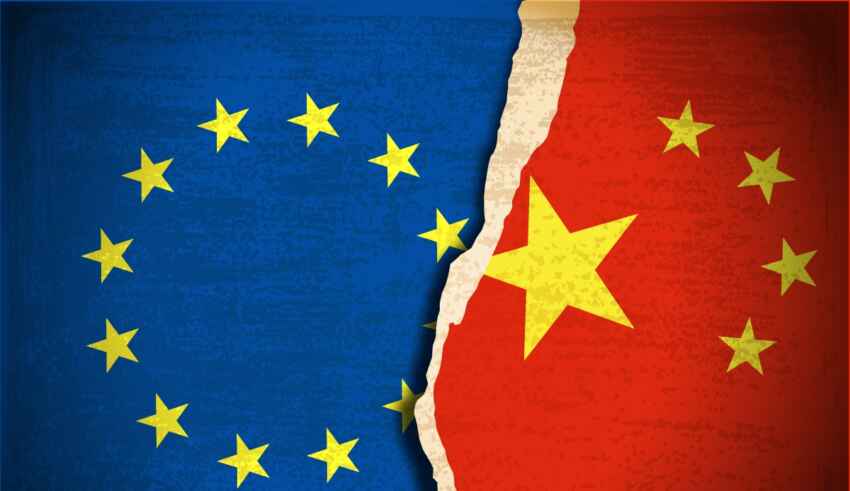
When analyzing this topic, it is determinant to understand how China has reached its present international position and growth. In this respect, China’s remarkable economic growth began in the 1980s and such event can be attributed to the visionary policies initiated by Deng Xiaoping in the late 1970s. He spearheaded a process of de-socialization by privatizing agriculture and simultaneously introducing private industrialization in rural areas. Subsequently, Deng focused on restructuring and modernizing the urban industrial sector, gradually opening it up to domestic and international markets. These policy changes yielded impressive results, and the Chinese economy experienced a real annual growth rate of nearly 10% between 1980 and 2006. As a result, the Chinese economy has become the fifth largest in the world, behind only the United States, Japan, Germany, and the United Kingdom. China is expected to overtake both the British and German economies in the near future, securing its place as the world’s third largest economy (Wilson Center, n.d.).
Regarding EU-China relations, Josep Borell, High Representative of the European Union for Foreign Affairs and Security Policy, expressed that the EU’s current position towards China is based on considering China as ‘a partner, competitor, and systemic rival’. However, bilateral relations between the EU and China have deteriorated due to several discordant elements. These include China’s disproportionate response to selective restrictive measures imposed by the EU, China’s trade measures against Lithuania that directly affected the EU single market, and China’s position in the war against Ukraine as stated by Borell. Despite these challenges, the EU has maintained its commitment to dialogue and cooperation with China, recognizing its crucial role in solving global and regional problems. An example of this is the fight against climate change, where it is recognized that a solution cannot be found without a strong partnership with China and its commitment. Although China has made increasing efforts in reducing CO2 emissions, it is still a large consumer of coal, as is the rest of the world. Therefore, it is understood that China’s partnership is necessary to effectively address global warming (Borell, 2023).
Despite the existing tensions between the EU and China, it should be noted that channels of communication have remained open. In recent months there have been important visits and dialogues between EU and Chinese officials. This fact can be affirmed due to German Chancellor Olaf Scholz visit to China in November 2022, in February 2023, China’s top diplomat and former Foreign Minister Wang Yi toured Europe to visit France, Italy, Hungary and Russia, and attended the Munich Security Conference or the meeting that the Spanish President and President Xi Jinping had on March 31 in China, among others (Huld, 2023).
Therefore, it can be said that EU-China relations are expected to persist amid tensions. The EU and China still have very different positions on a number of issues, but EU-China relations and engagement are expected to persist for the foreseeable future (Huld, 2023). The European Union’s stance on China differs from that of the United States, which has historically viewed China as a rival since its emergence and is apprehensive about its imminent overtaking.
It is essential to recognize that the European Union consists of 27 member countries, which naturally leads to a diversity of perspectives on cooperation with China. Therefore, the collective actions of the EU do not preclude individual member states from adopting independent approaches towards China. Hungary serves as an example, as its relationship with China has demonstrated a friendlier stance compared to other EU countries in recent times (Huld, 2023).
This raises the question of whether we are witnessing a scenario where different EU member states could adopt different positions towards China? Or whether the EU will continue to present a unified and determined front? The outcome remains uncertain and is yet to be determined.
References
Wilson Center (n.d.). Europe and the Rise of China and Europe. Global Europe Program. Retrieved from: https://www.wilsoncenter.org/publication/europe-and-the-rise-china-and-europe
Borell, J. (2023). “Mi opinión sobre China y las relaciones UE-China”. (My view on China and EU-China relations). Real Instituto ELCano. Retrieved from: https://www.realinstitutoelcano.org/analisis/mi-opinion-sobre-china-y-las-relaciones-ue-china/
Huld, A. (2023). “Relaciones UE-China: comercio, inversión y desarrollos recientes” (EU-China relations: trade, investment and recent developments). China Briefing. Retrieved from: https://www.china-briefing.com/news/relaciones-ue-china-comercio-inversion-y-desarrollos-recientes/#:~:text=El%20comercio%20UE%2DChina%20ha,20%20%25%20en%202021%20y%202022
Haenle, P. (2023). Is Europe aligned on China? Carnegie endowment for itnernational peace. Retrieved from: https://carnegieendowment.org/2023/05/09/is-europe-aligned-on-china-pub-89710
By The European Institute for International Law and International Relations.













